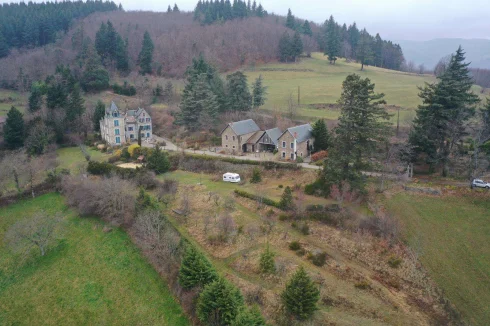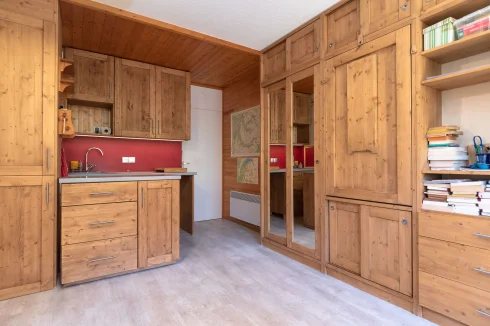Income Test for a French Visa
Monday 18 January 2021
The French Embassy in London have provided guidance on the income test that will apply for those seeking a long-stay visa. UPDATED 17th Dec 2022.
Since the beginning of the year, UK nationals who do not have the protection of the Brexit Withdrawal Agreement are only permitted to stay in Europe for a maximum of 90 days in any 180 days.
Those seeking to remain in France for a longer period, or who wish to relocate to France to live, must apply for an entry visa.
The visas vary by type of applicant (business, student, family, researcher, talent) but the one that will normally be issued will be a 'Visa de long séjour valant titre de séjour VLS-TS « visiteur » or, for up to six months, a 'Visa Long Séjour Temporaire (VLS-T) « visiteur » '.
The application is made on-line at France Visas.
The application cannot be made earlier than 90 days before your departure. An interview is necessary, either in London, Manchester or Edinburgh.
Although in the overwhelming majority of cases it will merely be a bureaucratic process, granting of a visa is subject to a test of resources and to health insurance.
In relation to the resources test, Article L313-6 of the Code de l'entrée et du séjour des étrangers et du droit d'asile states that:
'La carte de séjour temporaire portant la mention “visiteur” est délivrée à l'étranger qui apporte la preuve qu'il peut vivre de ses seules ressources, dont le montant doit être au moins égal au salaire minimum de croissance net annuel.'
The reference in the text to to 'salaire minimum de croissance net annuel' is the minimum working wage, called 'SMIC'.
The level of the SMIC from 1st August 2022 is €1,678.95 gross per month, or €20,147 per year.
For the purposes of assessing entitlement to a visa, the authorities use a 'net' figure, after deduction of social insurance charges, which is €1,329 per month, or €15,948 a year per adult. UPDATE: It increases to €1,353 net per month from 1st Jan 2023
The French Embassy in London have advised us that they will accept €2,000 as the minimum income figure for a couple.
Accordingly, a couple with a net income of not less than €2,000 per month would meet the resources test for a long-stay visitor's visa..
This rule applies to both those seek to relocate permanently to France and second home owners or visitors who seek a visa for 3 to 6 months.
Your income must be 'stable et régulière.'
The law and practice on the threshold for families with children is less clear, but it does not appear to be severe. Thus, if you have only one child the law does indicate that the SMIC level above may still be sufficient, with the law stating: 'Ces ressources sont considérées comme suffisantes lorsqu'elles atteignent un montant équivalent à ....../ cette moyenne pour une famille de deux ou trois personnes.'
Where you have more than one child the threshold is higher. Although we were previously of the understanding that the social security benefit Revenu de Solidarité Active (RSA) should be used as the reference figure, due to practice in some prefectures, the law indicates that using a fraction of SMIC for each child is more appropriate.
In the case of a family of four to five persons, this would be at least one-tenth of SMIC.
The Embassy are unwilling to confirm a lower figure will apply for a single person, as the SMIC threshold is enshrined in law, so you should plan on this basis. Nevertheless, some limited concessions are possible and likely.
The guidance issued on the delivery of visas states that those resources can include different sources of income: 'Les ressources peuvent provenir d'une activité professionnelle exercée à l'étranger, de rentes ou pensions, de revenus mobiliers ou immobiliers, elles peuvent également être propres au demandeur ou émaner de la prise en charge financière par un ascendant ou un descendant.'
Although it appears that financial support from a relative is accepted, we are aware that officials are reticent about accepting this as eligible income, unless the income is secure and stable.
However, the resources can include capital, with the guidance stating that the applicant must demonstrate resources 'equivalent' to at least 12 months SMIC:
'Justificatifs de moyens d’existence suffisants atteignant un montant annuel égal à 12 fois le montant du SMIC mensuel net (attestations bancaires, cautions de personnes solvables, titre de pension pour les retraités…).'
Accordingly, if you have no income, but a substantial capital fund that is not earmarked to buy a property in France, it should be possible for you to obtain a visa for a year. However, you need to consider whether you will continue to have the means of subsidence to obtain permanent residency in France.
These documents can normally be provided in English.
In addition, the housing circumstances of the applicant are taken into consideration, with the guidance stating:
'Sont également prises en compte dans l'évaluation des ressources les conditions de logement (propriétaire, locataire, hébergement gratuit) et éventuellement des cautions fournies par des personnes solvables'.
In marginal cases officials can accept a lower figure than SMIC, provided the applicant can demonstrate that they are mortgage and rent free:
'Lorsque les ressources du demandeur ne sont pas suffisantes, une décision favorable peut être prise si le demandeur justifie être propriétaire de son logement ou en jouir à titre gratuit.'
The law also provides that those with a major disability, and in receipt of long-term disability benefit, may be granted a visa if they do not meet the SMIC threshold.
Finally, those proposing to relocate to France to run a business may also obtain some relaxation from the SMIC rule, but only provided they can demonstrate to officials they have a credible business plan, which most applicants are likely to struggle to achieve.
In conclusion, we are not seeking to claim in this note that everyone who applies for a visa is going to be successful with their application. All applicants are considered on an individual basis and there is also the health insurance test to meet, which will not, in all cases, be easy.
However, we have been struck by the number of readers who have contacted us, concerned that Brexit may mean the end of their dreams to live in France. The income test we have outlined suggests that, for most applicants, this should not be the case.
Nevertheless, living in France is not cheap and those whose income is marginal or insecure need to be mindful that at the end of the initial 12-month visa period it will be necessary to make application to your local prefecture for a longer-term carte de sejour, when the income test will again be used. The link below provides more information on becoming permanently resident in France.
Thank you for showing an interest in our News section.
Our News section is no longer being published although our catalogue of articles remains in place.
If you found our News useful, please have a look at France Insider, our subscription based News service with in-depth analysis, or our authoritative Guides to France.
If you require advice and assistance with the purchase of French property and moving to France, then take a look at the France Insider Property Clinic.





